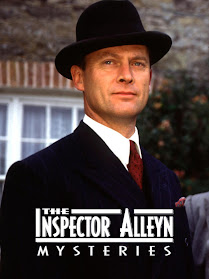I have mixed feelings about these decisions. In Heyer's case, I put the action down to an excess of writerly fastidiousness. After all, she removed from publication books that are arguably not so good but also books that readers requested be republished once she died and her estate took over: Simon the Coldheart and Beauvallet.
Of course, now, many of those earlier books are in the public domain. I read one of Heyer's earliest contemporary romances, Instead of the Thorn, and I think I know why Heyer removed that book, at least, from publication.
As mentioned on Votaries, in the early twentieth century, everyone--not just romance writers--was writing books that delved into the psychology of marriage, from Sinclair Lewis's Dodsworth to Katherine Mansfield's short stories.
The problem? Heyer wasn't that smart about marriage. (She was married when she published Instead of the Thorn but being in something is not the same as being smart about something.)
Now, Heyer is a good writer. She created decent characters who within her travelogue, adventure, comedic shaggy dog stories entirely work!
Rather than telling a story, however, Instead of the Thorn attempts to describe why a marriage went bad and then how it was repaired. And Heyer seriously has no clue.
She tries to argue that a prim & proper upbringing equals a young woman being disgusted by sex. I knew WAY too many young women at the religious university I attended in my late teens/early twenties, many with prim & proper upbringings, who greeted sex with immense relief and satisfaction, whether or not they had the "talk" with their mothers beforehand.
That is, they were more like Samuel Richardson's Pamela--and, for that matter, Jane Austen's heroines--than anything out of...I have no comparison. Anybody who writes realistically about young women would recognize Heyer's portrait as downright bizarre. Elizabeth, the protagonist, might imitate her aunt. She would quickly shed her aunt's influence the moment she went out into society.Unless she was inherently turned off by sex. In which case, no amount of "growing up" could save that particular relationship.
To be clear, I'm not saying the wife or the husband is right or wrong in regards to Elizabeth's "love me but don't touch me" behavior. Nor am I arguing that men and women react the same to sex; overall, I don't think that they do. I am saying that so immense a gap between "I like the idea of courtship and marriage" and intimate congress would spell the end of any relationship (one young woman in college announced, when she broke her first engagement, that physical attraction and desire are important, adding emphatically, "You can't talk yourself into feeling stuff even if you admire someone").
In fact, weirdly enough, Heyer resorts to a kind of sitcom explanation of the central relationship in Instead of the Thorn: Elizabeth, the protagonist, cannot feel desire until she feels true love.
Really? Because the history of teens and STDs and pregnancies also pretty much disproves that idea to the nth degree.
Heyer's approach here can't be blamed on the romance novel genre. In one sub-genre of the romance novel, even from 100 years ago, the female protagonist would sleep with her husband and have children before she ever figured out that she actually liked him, let alone loved him. That is, many many romance heroines--including Austen's--have been perfectly capable of feeling attraction/desire as well as an emotional connection without knowing exactly what they feel.
Heyer's approach--pairing sexual interest with so-called grown-up insight into "the other"--is an attempt at psychology, not practical observation (see Christie's novels for innocent young women who gladly leave their family homes to marry attractive ne'er-do-wells because, well, that's life!). Arguably, women are less likely to enjoy "friends with benefits" than men, but a young woman like Elizabeth would be FAR more likely to convince herself of an attachment than to run screaming to the hills because her husband wants to have sex. (And if she did run screaming, I'm not entirely convinced she would come back.)
In fairness, Heyer makes solid points about the difficulties of a young person moving from a "helicoptered" household to one where she has to behave like an independent-thinking adult. Nevertheless, the book doesn't have enough substance to stand beside similar books from the time period.
It's entirely possible that Heyer came to despise her "modern" psychological novels for exactly the reasons I've detailed above. She was married for 54 years, had a son, who married a divorced woman, and three grandsons. As mentioned above, people can do something without understanding it. However, Heyer's own experience may have come to bear some weight in her assessment of what she wrote when she was much younger.
And it's possible that Heyer never liked the book. She wrote Instead of the Thorn in the first place to make money/break into an industry, fiction, that had become fascinated with the problem of marriage.In the end, Heyer was a smart writer who ultimately figured out her genres--Georgian and Regency travelogue romances plus murder mysteries--and stuck to them.
Figuring out one's gifts: THAT is impressive.






















































